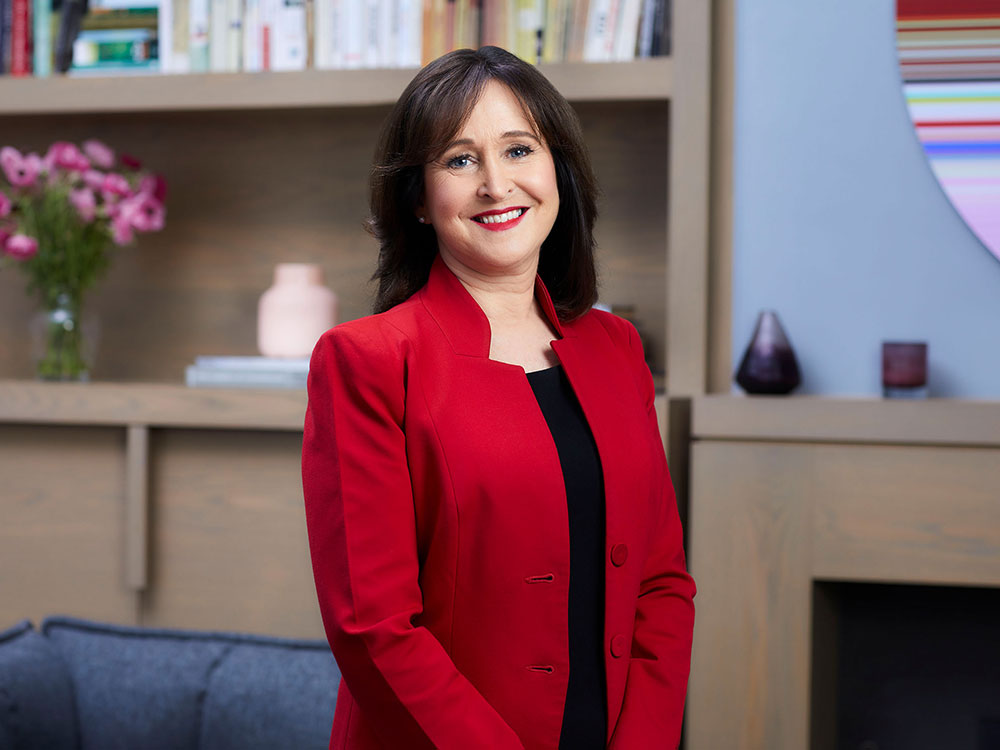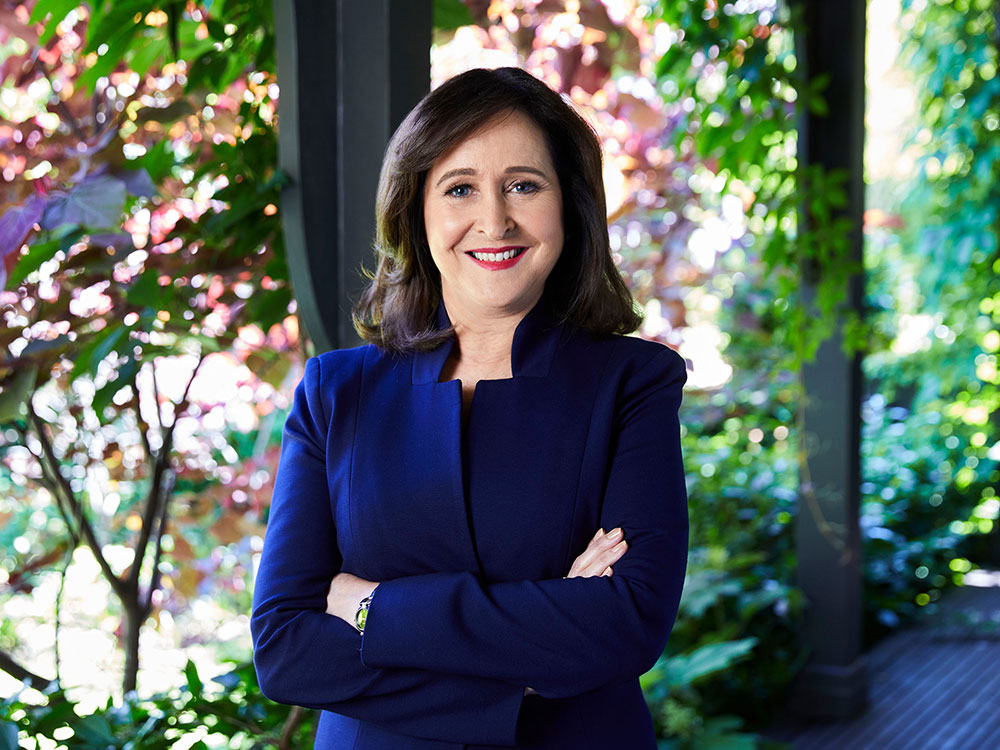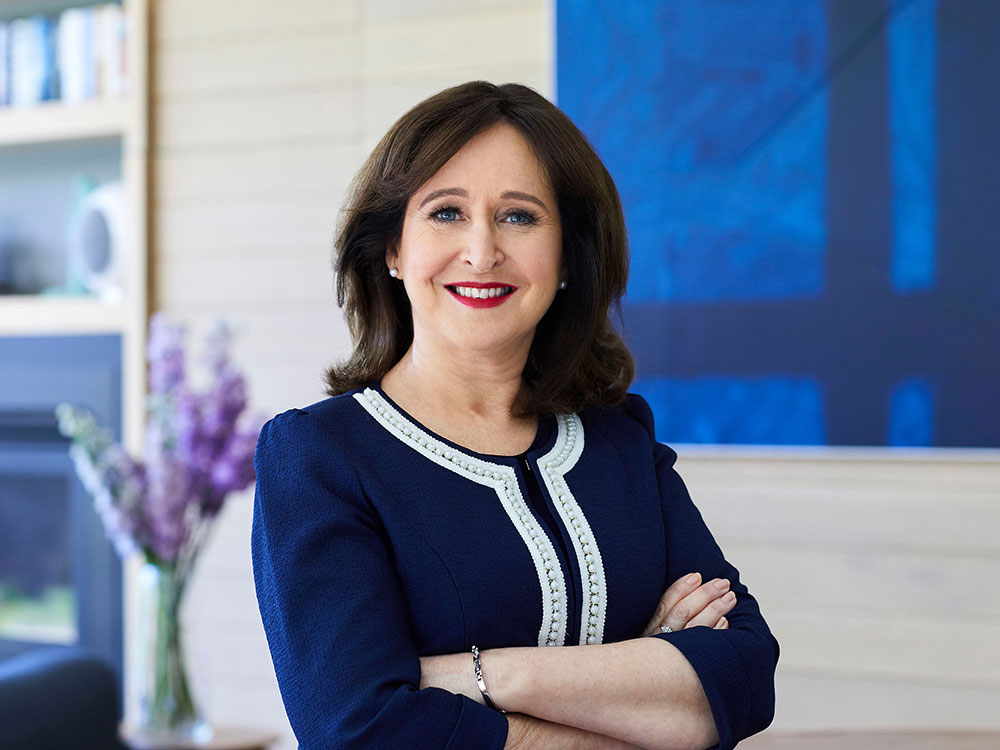Despite being the CEO of industry fund HESTA, Debby Blakey has an outsider’s appreciation of Australia’s super system. She was raised in South Africa.
“I didn’t grow up with compulsory super,” she says. “I feel so strongly that we have this absolutely phenomenal super system. I’m not sure we appreciate it deeply enough as Australians.”
The COVID-19 pandemic has shone the spotlight on Australia’s superannuation system like never before. The good news is it has made Australians more engaged and aware. Yet some pundits are questioning the proposed rise in the Super Guarantee, and even the very foundations of the system, including compulsory contributions.
But Blakey has a clear message. Don’t mess with Australia’s super system.
“My message would be that we don’t want to undermine the important role super plays in our economy, especially coming out of COVID when we’re facing difficult years ahead,” she says. “Super adds such stability to Australia both in terms of providing long-term patient capital, as well as security in retirement.”
Developing potential and investing in education pays off
Blakey was born in Benoni, a small city east of Johannesburg, though she spent most of her youth and early adult years in Durban and Cape Town.
One of three daughters, her father was a clothing manufacturer. “My mother and father had a very strong belief in developing our potential and investing in our education.”
At home, Blakey was also exposed to a world of ideas and issues: her father was a “great debater” at the dinner table and every night there were tremendous debates and philosophical discussions.
Her father also introduced her to finance and business. When she was just 12 he’d taught Blakey the whims of foreign exchange risks. “There was a lot of richness there in terms of understanding the world of business.”
For her university studies, Blakey toyed with the idea of engineering and medicine, but stuck with her first love of maths, taking a Bachelor of Science, majoring in mathematics and computer science, at the University of KwaZulu-Natal. “Maths was a tremendous grounding for a career,” she says.
Blakey’s first job was at IBM in a graduate intern role, but she quickly realised she wanted to get back to her passion for maths, and she joined a large life insurance office where she worked on actuarial valuations on large defined benefit super funds.
At university, Blakey met her husband Lawry, who later worked with her at IBM and has become her “go-to mentor for tough decisions”.
One of those tough decisions, when they had two children, was to become a self-employed consultant to South Africa’s corporate super funds, which were all voluntary.
In the early 1990s she took on another challenge: studying to become a cricket umpire. She ended up as a first division umpire. While not work related, it was a pivotal move in building skills for her career.
“It really did build my confidence,” she says. “I was fairly small in stature, but I was out there in the midst of the hurly burly of very intense cricket matches. You learn about yourself, about pressure environments like that, and you to learn about decision making. It was just an incredible growth period for me.”
In 2000, Blakey and her husband decided to migrate to Melbourne. Blakey says there was a time when they had a real passion to stay in South Africa and be part of a democratic solution. But by the late 1990s they realised they wanted to give their children a more stable future.
When she arrived in Australia, Blakey took a year off to settle the family in a new country. And then she landed a job in business development at industry fund NGS Super. “When I went to Adelaide for the interview, I actually didn’t know what an industry fund meant,” she says. “But I was incredibly fortunate that I happened to land at an industry fund. I soon realised how privileged I was working for a profit-for-member organisation, and it’s never left me.”

Arriving at HESTA and the rest is history
In 2008, Blakey joined HESTA as executive manager of member advice, working closely with members and building the fund’s advice model. By 2012 she was Deputy CEO to Anne-Marie Corboy, whom Blakey describes as “an amazing person, phenomenal leader and very good mentor”.
When Corboy announced she was leaving, Blakey was potentially in line to be considered for the top job. But she was initially uncertain. She was happy as Deputy. “I loved being Deputy CEO. I wasn’t sure when Anne-Marie told me she was leaving that I wanted the CEO role strongly enough.”
Blakey worked with a coach, clarifying why she might want the top job. “Something that’s very important to me is being very clear of my why. I really wanted to understand why for me it was important.”
Something that’s very important to me is being very clear of my why. I really wanted to understand why for me it was important.
By the time of the interview process with the external recruiter and board, Blakey knew her answer. “I was so committed to passionately wanting to be the HESTA CEO and I put my heart and soul into convincing the board about that.” She was elevated to CEO in March 2015.
HESTA covers the health and community services sector. When Blakey became CEO, the fund had $32 billion of funds under management. She embarked on an ambitious strategy to reach $50 billion. HESTA has eclipsed that mark, with $52 billion under management.
The fund is now developing strategy to become a $100 billion fund. The strategy includes bringing digital and technology solutions inhouse to make operations more efficient and to connect better with members. But it also includes an ambitious investment strategy, including bringing investments inhouse.
Apart from driving scale, Blakey wants to keep driving HESTA’s purpose-led DNA. That purpose includes increasing member confidence in their financial future.
But it is also a clear understanding of HESTA’s commitment to be a “gutsy advocate” for members, driving meaningful change for generations to come through its actions as corporate citizen, how it invests and through its active ownership and advocacy.
“That’s very real for us. It’s not just change around the edges, but meaningful change in terms of retirement outcomes and in terms of the world our members retire into.
“We are in a privileged position: our members do care deeply about this. They have a very strong sense of the importance of considering social impacts in how we invest and considering the environmental impact of how we invest.”
Impact investing and the impact of COVID-19
HESTA has become a pioneer in ‘impact investing’ (investing for financial returns but also a positive social impact) in areas including social and affordable housing. It also became the first major Australian fund to introduce a carbon reduction target across its whole portfolio.
Blakey says HESTA is particularly good at looking at system-wide issues and bringing in frameworks to solve them in a “bigger and broader way”. She cites Rio Tinto’s destruction of ancient caves in Western Australia, which she describes as shocking. “We have taken a forward-looking view. As well as talking about this with Rio, we launched a program to engage with 14 companies who have a similar risk in Australia.”
Like all funds, HESTA is also grappling with the impact of COVID-19.
Some 80 per cent of its members are women, and there’s an increasing body of evidence to show women have been deeply impacted by the pandemic. Blakey notes that a McKinsey report found that women’s jobs are 1.8 times more vulnerable in this crisis than men’s jobs. And th
at globally women make up 39 per cent of global employment, but will account for 54 per cent of job losses.
“Even before COVID, progress on gender parity had been very patchy,” she says, noting that women retire on average with 40 per cent less super than men.
“What we’re in danger of is COVID actually undoing the hard-fought progress we’ve made on gender equality and that we actually see this going into reverse.
“As we emerge from this crisis, more than ever we have to really put a very strong gender lens on how we think about the future. As we come out of COVID we need to ask ourselves; how do we build the future we want, one that is more fair and more equitable?”.
As we come out of COVID we need to ask ourselves; how do we build the future we want, one that is more fair and more equitable?
Blakey says building fairness will require policy response outside of super, such as considering free childcare. But super funds like HESTA also need to play a role and invest to create jobs for women and to make a difference in the gender gap in terms of pay and retirement.
The pandemic has called on HESTA’s members—the health and community services sector—like never before. They are at the front line, putting themselves at risk.
“They are doing so much to support so many Australians,” Blakey says. “There is a tremendous role for us to think about how we support them, how we engage with them and meet with them where they’re at.”
Many expected that given the vital role of healthcare in the pandemic, that HESTA wouldn’t be affected significantly by the early access to super scheme. But Blakey notes that the pandemic has significantly impacted employment in some areas such as allied health, dental, and even private hospitals with the cancellation of elective surgery. HESTA has been the fund with the sixth largest withdrawal, totalling $1.5 billion
There is an upside, however; the crisis has seen a significant uptick in engagement with HESTA’s members. Many members have engaged with the fund for the first time. “There is a tremendous opportunity for us to engage very thoughtfully and empathetically with members going through a tough time.”

Personal priorities and future industry opportunities
When it comes to her personal life, Blakey says the pandemic has reinforced the importance of friendships. “One thing you learn when you move half-way across the world is how important friendships are,” she says, adding that most ‘non-COVID’ weekends she will be entertaining friends at home.
Blakey is busy as a wife, mother and daughter. She is extremely proud of her two children and who they are and what they stand for. (Her son works in financial services in London, and her daughter in communications and event management in Sydney.) Her parents live five minutes down the road, and she enjoys supporting them.
But Blakey says she is not a believer in the way people talk about work-life balance. “My life is a complicated tapestry of so many different facets. They all weave together. It’s important to have space for all of them. My work is a big part of who I am; it provides me with huge satisfaction and gives me the ability to contribute to something bigger than myself.”
Looking forward, as CEO, Blakey says her goals now are to build the fund to $100 billion and to deliver investment excellence: not just fantastic returns, but also investing with impact. “There’s a lot of unfinished business there for me personally”.
But she sees great opportunity in the post-COVID environment. “I’m excited to have an impact on rebuilding the future we want as Australians, that delivers strong economic growth and returns for members as well as addressing challenges like gender equality and climate change.”
She is also keen to “really raise the bar” in terms of engaging with members through the suite of digital tools and channels that will be needed as people emerge from COVID.
Blakey says despite the challenges, the pandemic has created an opportunity for HESTA and the broader superannuation industry.
“Super is far better known,” she says. “People understand the value of having compulsory savings and they see how a pandemic can destroy things you thought were guaranteed,” she says. “I think there will be a new value applied to super and the financial security it brings millions of working Australians and our economy as we rebuild. It’s an exciting time to be able to contribute to this next chapter of our super system.”
Blakey says super works because it is universal and compulsory, and it is preserved for retirement. Undermining these foundations of super will weaken a vital piece of social infrastructure for our nation.
She adds that walking back the bipartisan commitment to go to 12 per cent Super Guarantee will also deny many working Australians the peace of mind of greater financial security as they age.
“I think our daughters, our sons, our granddaughters and grandsons deserve that we fight right now to retain the benefits of Australia’s super system for all.”
Blakey has just joined the ASFA board representing industry funds.





































